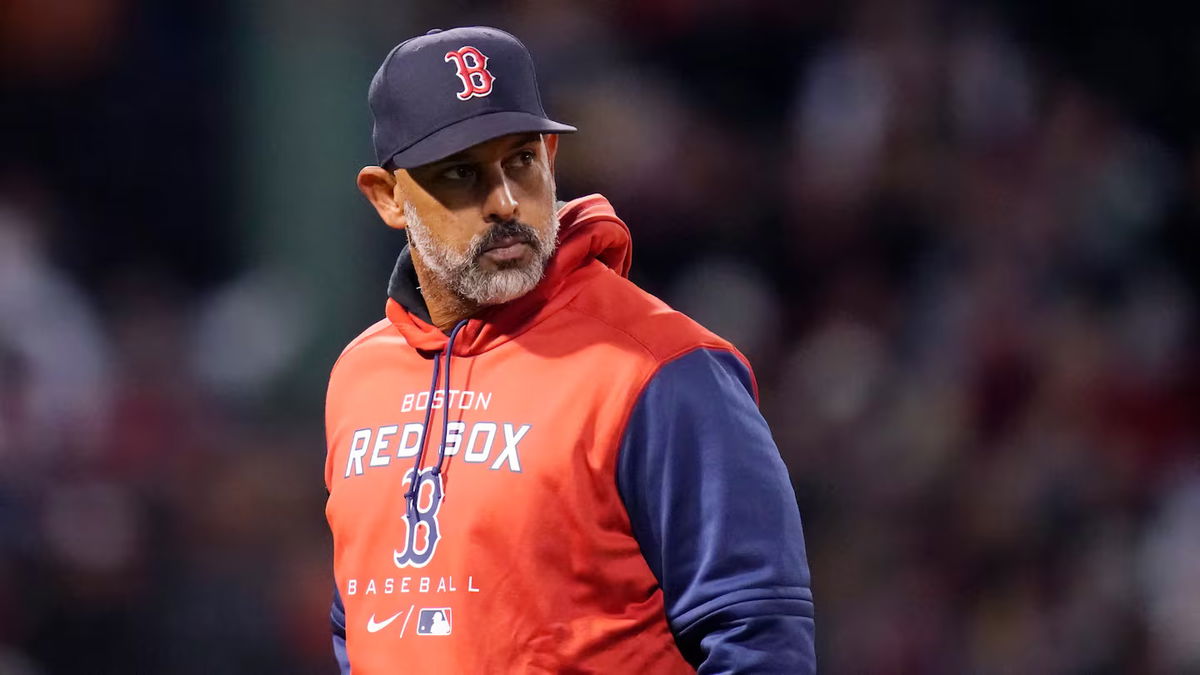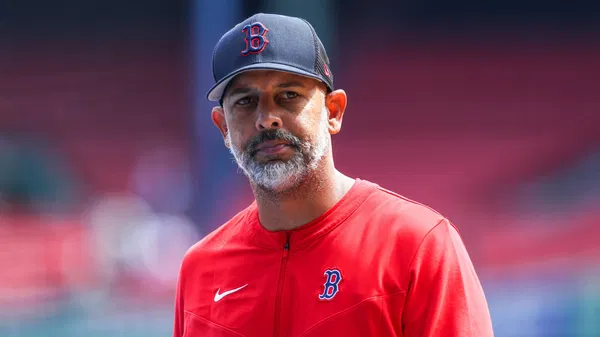

Of course, the expectation was to experience baseball, and probably Fenway Park cheering to a much-needed Red Sox win. Instead, there was a spectacular opening that set the mood for an afternoon they would never forget. Even before the first pitch, a long-standing feud between the Boston Red Sox and the Los Angeles Angels turned into a passionate argument on the field, ruining the idea of a regular series and adding pure, unfiltered tension to the historic ballpark.
Watch What’s Trending Now!
To our surprise, the argument started during the warmup session only. Tyler Anderson, the Angels pitcher, spoke with Jose Flores, the 1B coach for the Boston Red Sox. It was regarding the interpreted signs during Monday’s game. This open communication could foster a better understanding of the strategies at play. But as Angels pitching coach Barry Enright intervened, things got worse rapidly, and players and coaches from both sides started yelling at each other. Team and security staff stepped in to keep things from getting worse.
The game on Monday had all the ingredients of anxiety. Anderson gave up five runs in 4 1/3 innings, which was not good. And the Angels thought Flores had been sending signs from first base, which raised questions because PitchCom equipment is supposed to stop sign-stealing. Even with the technology, Anderson felt he had to confront Flores. A pure curveball with a blend of drama.
Later, Red Sox manager Alex Cora was caught on camera, and it looked like he was talking to Anderson to settle things down. In the postgame interview, Cora downplayed the argument. “Just baseball talks, you know, disagreements that happened throughout the series and all of that, but everything is good.” His remark was meant to calm things down and bring the emphasis back to the game.
The game was like a roller coaster. The Angels got a quick start, scoring four runs in the first inning. And the Red Sox returned with five runs in their half of the first inning. It was a 9-9 stalemate after both teams hit each other hard. Ceddanne Rafaela hit a two-run homer, 308 feet long, in the bottom of the ninth. And with that, the Red Sox won the game 11-9 and stopped the series sweep.
In other news, it wasn’t the only drama in the series. Tension had been building since the Angels got there. The night before, a high-stakes moment occurred when a decision made in extra innings caused almost as much controversy as the fireworks before the game.
Red Sox roll the dice with a double play
In a tense 10th inning on Tuesday night, the Boston Red Sox chose a double play over a play at the plate. And it led to their 4-3 loss to the Los Angeles Angels. Taylor Ward of the Angels hit a ground ball that turned into a double play, letting the go-ahead run score with the bases loaded and no outs. And Alex Cora stood by the choice and stressed the strategic trade-off.
When asked about it, Alex Cora said, “To go to the plate there, it’s still bases loaded (and one out). You’re taking a chance and we decided to play back in that one. We give one. We’ve got a man at second.” He is someone who knows what he is doing. And that’s precisely what he said, “You take your shot, and it’s like playing the odds.” But looks like playing against the odds didn’t help much.

Cora reflected on the outcome and admitted, “We’ve been through this. If we try to force a play there, it doesn’t make sense for us. Turn the double play, get the next out and you’ve got a man at second and no outs (to start the bottom of the 10th). That’s kind of like the way I see it in extra innings. You give up one, you should score one. It just didn’t happen.”
Sadly for Boston, the plan didn’t work out as they wanted it to. And then comes the bottom of the 10th inning. Carlos Narvaez and Trevor Story struck out against Reid Detmers, and Ceddanne Rafaela popped out to first, sealing the Red Sox’s loss.
The team’s current record of 30-34 is partly due to problems with situational hitting and defensive performance. And the Red Sox must deal with these problems as a priority to improve in close games.

